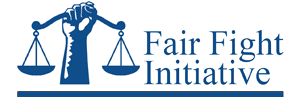Interview With Norris Henderson Director of Vote in Louisiana
Dave Kartunen:
Our guest this episode is Norris Henderson, who has an incredible five-decade story of fighting for the rights of formerly incarcerated people, including himself. It was during a life sentence in Angola prison where Norris began and co-founded the Angola Special Civics Project, which began a journey that led to his freedom and provides a story of hope in criminal justice reform. And he joins us from the new Vote office in New Orleans.
Linda Franks:
First of all, let me say thank you again so much, Mr. Norris Henderson, for taking time out of your busy, I know busy, busy schedule to speak with us for this time. I just want to personally say what an honor it is, and I mean that from the bottom of my heart.
Linda Franks:
I am a big fan of Vote. I’m a big fan of you, Mr. Checo, and all of the work and the things that the amazing people at Vote are doing and are aspiring to do, and I am humbled to even be a part of what you guys are doing. I take part in one of your leadership trainings that’s being held here in Baton Rouge by your contingent here.
Linda Franks:
I wanted you to know that your people are committed to the vision of Vote, and it’s a wonderful thing to work with them in the community, and I’m happy to be a part of it. I’m just absolutely happy. I’m a fan. I’m not going to gush too much. So again, thank you so much for being here. And we want to start by just really having you talk about yourself.
Norris Henderson:
I think I can just take one of Checo’s lines. I’m just a poor boy a long way from home. That was kind of like the story we would tell the folks when they would see us inside the prison. It was like, “Hey, I’m just a poor boy a long way from home.” And so this journey of mine, this journey that I’m on, started here in New Orleans, as I’m born and raised here in New Orleans, and I was either, if not the smartest kid in the classroom, maybe the smartest male.
Norris Henderson:
And so I’ve always had this yearning for learning. I mean, even in the community that I come out of, I would be in neighborhoods, and I would have a book in my back pocket. So if I’m sitting in the project, I’m sitting down on the stairs reading a book, and in hindsight, looking back at it, I guess it was kind of, “This kid’s in the wrong place.”
Norris Henderson:
Even so that even when I wound up in prison, and they give you these battery tests early on, I guess to check your aptitude and stuff, and those folks would say the same thing, “How did you wind up here? Nothing in your profile dictated that you should have wound up here.” And I think prison for me was a bad experience with good results. And I say that because I wouldn’t be doing the work I’m doing today had it not been for that bad experience. And I’m saying bad experience not in the sense that people done me harm or nothing like that, but it became the eye-opener in a sense of what this system was all about. It allowed me to really learn and study the law.
Norris Henderson:
And now, 30, 40 years later, I’m taking that very same knowledge and using it in a way that’s educating our communities about what these systems are all about. And I tell people a lot that those on the cutting edge of change sometimes don’t benefit from the change they bring about. Everybody that worked in the prison law library for better than 20 years became really adept at the law. And so when I’m raising legal questions, folks can’t question whether or not do he know what he’s talking about.
Norris Henderson:
And then when I talk about conditions inside those places, people can’t say, “Oh, what he’s talking about? He don’t know.” I do know because I’ve been there, front seat, third chair. And so I think that gives me the credibility in the sense that other people may or may not have when they’re dealing with these types of issues. It’s like our campaign around OPPRC, around the Orleans Parish Prison, which primarily these voices of folks who have been inside could tell the story more than the academicians because they were in theory. We were about no, no, no. This is our life experience. And so I think this has been that catalyst for us being successful, that our life experiences are starting to pay dividends in a different way.
Norris Henderson:
This system, and I tell people all the time, it’s not broke. This system is designed to do just what it’s doing. The thing is, our job has become highlight what that crisis is, shifting the frame, and offering a solution. I used to tell folks all the time who would come visit the prison, I used to ask them, “Why are you here? Are you here because your faith teaches you to have you visiting people in prison? Are you actually here to actually help us?” I say, “Okay, help is not what you want to give me. Help is what I need.”
Norris Henderson:
And I think that is the biggest piece of it is that a lot of folks circle away, like I’m here to help you, but if you’re not willing to do what I need you to do, you’re not here to help, because in life there’s going to be three types of people you encounter. There’s going to be aids. There’s going to be allies. There’s going to be associates. When you find somebody that’s all three, that person becomes your friend. And so when you’re encountering people, you have to really be sincere with people about how they show up.
Linda Franks:
You about to make me shout up in here. Let me tell you something. That’s what people fighting in the system have to realize, that the things that we have gone through, that we haven’t gone through them for ourselves or to show how strong we are, but because God could trust us to use that experience to further.
Norris Henderson:
Exactly. And that’s the perfect segue, because I tell people that all the time. There’s nothing special about me. And the same thing, these trials and tribulations that we go through is just to test our mettle.
Norris Henderson:
I remember a judge out of Baton Rouge, Judge Robert Downey. He had came to one of our lifer meetings and was giving a speech, and he would say one of the things he never prayed for was patience. And I was like, uh-oh. Because in my Islamic attributes, sabr means patient. And so when he said that, I’m like, oh, I’m going to sit up straight in the chair now. I got to hear this.
Norris Henderson:
He said, “Because with patience comes trials and tribulations.” And in that moment, my whole life started passing in front of me. And it was like, at two years old, my mom died. At 13 years old, my mom’s only brother died. Then my grandmother, my maternal grandmother, before I was 14, she died. So one whole side, my whole maternal side of my family was gone, was completely gone.
Norris Henderson:
Fast forward, grow up, become a young man, have kids of my own. Three years before I get out of prison, my son get murdered. The second year before I get out of prison, my paternal grandmother died. Almost one year to the date that I get out, my dad dies. Just because you say believe don’t mean you want to be tested.
Norris Henderson:
But I guess God realized then, and the whole while I was inside, I helped create a hospice program to deal with death and dying and how to adjust. And one of the things that I remember one of the trainers told me was that after I shared that, he said, “Man, you’ve experienced a lot of death.”
Norris Henderson:
And then to cap it off with, I’m born on November the first, which is All Saints Day in Louisiana, and so most of my birthdays were visiting the cemetery, and I never could understand it as a kid. “Why me?” Not knowing that there’s a bigger plan for you somewhere down the line, but I need to be able to rely on you when things get rough.
Norris Henderson:
The work that we’re doing, why I’ve been blessed to do this work, then people kind of start connecting the dots. “Oh, I see. You just went off to training, and now you are back, and now you are sharing the training.” Because I tell people all the time, I don’t think God blessed me with all of this knowledge about this particular system to keep to myself.
Norris Henderson:
All of it goes back to the vulnerable education I had as a kid that when I got to the prison, because of the skill sets I had, I’m a machinist by trade, and so I didn’t have to work in the field for long, had to do my little 90 days in the field. But the people realized, oh, he got real skills. I got a job working out of the fields, working in the machine shop.
Norris Henderson:
And then when the guy’s going to the law library every day, trying to figure out how to get myself out. They had a law class. The guy introduced me to it, and they give you a little battery test. And when I took the test, the guy was like, “Oh, you don’t need to be in a class. You need to be helping us teach the class.” The law literally became my wheelhouse.
Norris Henderson:
And so I have taken all of that and the blessings that came along with them and helped build this organization, because one of the things that really motivated me was, I just couldn’t understand for the life of me how somebody could be in prison with you, sleep next to you for 10, 12, 15, 20 years, get out, and forget you even existed. I just couldn’t figure that piece out. I asked God that if He ever blessed me to get out this place, one, I wouldn’t forget where I came from, nor would I forget the people I left behind.
Norris Henderson:
And so in 2003 when I got out, literally a year from the day I got out, I actually founded the organization Vote, which was actually created while we was inside praying that somebody’d get out and carry the mantle, and then it fell on me.
Dave Kartunen:
Well, you mentioned the word patience. And if there’s a picture of it, a better picture, but I don’t know where to find it, but you also mentioned the word frame there. And so I wanted to frame your five decades, because you did start to date yourself there with a mention of how the schools work, but to frame it over these five decades that you’ve done this work… I’m sorry for saying five decades. That sounds like a lot.
Norris Henderson:
But that’s what it is. That’s what it is.
Dave Kartunen:
Between when you started this work, how Vote came to be, and this moment that we’re in now-
Norris Henderson:
Matter of fact, as we’re talking, I actually have a copy, and this is what we actually drafted was an analysis: Pen Reform, Louisiana, The Need for immediatechange. And this was done in 1987. And so 30 years before the justice reinvestment act came along in 2017, we had already created this proposal to analyze parole laws governing long terms and lifers.
Norris Henderson:
And so I think we were kind of like the cart before the horse back then, but still we don’t have the luxury to quit. We can’t give up. And so we just kept toiling and struggling, toiling and struggling, toiling and struggling. But what it started doing was just sharpening our tools. We just started learning how this system works, how the legislative process worked, what we needed to do on that front. So by the time I got out, I hit the ground running.
Norris Henderson:
I literally hit the ground running, knew exactly what I needed to do. Didn’t know all the people I needed to meet, but I knew exactly what needed to get done and had built a core group of people to try to make it happen. Over those decades, that’s what it was, incrementally getting this little thing done, getting this done. But the reality that while we were inside, we got a bill passed. We’re outside now. We should sure enough be able to get something done, because we can show up ourselves, tell our story, and get people to listen.
Norris Henderson:
And so in 2017, everything came to a crescendo. We were able to go into legislature ourselves and start telling our story. You know what? I was that lifer who done this. I was that lifer who wrote this. I can explain to you how we got into the situation that we’re in. And they were all ears.
Norris Henderson:
And so we were there and able to provide the institutional knowledge how Louisiana became the number one incarcerator in the world. And then there were folks who were there saying, “Oh, we need to lose that distinction.” I’m saying, “Well, I’m all in.” And they were echoing, “I’m all in, too.” I’m like, “Oh, okay. We’re onto something now.”
Norris Henderson:
It was miraculous that we got 10 criminal justice pieces of legislation done in that session in a bipartisan way. And people all across the country just started sitting up straight, said, “Wait a minute. This is a red state, and they got all this criminal justice reform done. What happened?” It took us 30 years to get where we had got, but we had arrived.
Norris Henderson:
One of the other things about being in a position that we were in, we were able to identify everything that was wrong with this system. So in ’18, when they was talking about… 2018 we was talking about non-unanimous jury verdicts, we were like, I had one of them, and I went to prison, and I shouldn’t have. And so when people start telling real stories, it was easy for us to go knock on people’s doors when we were canvasing and explain to people what the non-unanimous jury verdict was, and people were saying, “That’s what my son was talking about. That’s what my daughter was talking about.” “Yes, ma’am. Yes, sir.”
Norris Henderson:
And so this last legislative session had five pieces of legislation. Four out the five, the governor signed them into law. One of them was they expanded voting rights for folks that’s on probation, how formerly incarcerated people could now be able to serve on a jury. They had the 2045 law they talked about, we got passed in 1990 that they repealed in ’97. Well, this year we got it reinstated and made it retroactive all the way back. And so 3000 people became immediately eligible for parole release.
Norris Henderson:
And then the last one is the collateral consequences that a judge now, before they sentence you to prison, have to advise you that if you are guilty, one, you may lose your right to vote. You may lose access to healthcare, access to education. But also now, too, is that because you have to have a unanimous jury verdict, DA is now reluctant to squeeze people because people are like, “Oh, take me to trial.”
Linda Franks:
Just hearing all of that, just the expanse, and it drove me back to you talking about culmination of work. How about this sheriff’s race in New Orleans? For those of us who have lived our experience in the south and understand the dynamics of the quote-unquote southern sheriff and all that goes along with that system and that dynamic, can you speak a little bit about Vote’s participation and how all of that victory kind of came about?
Dave Kartunen:
To add to that, Susan Hudson ran on a campaign that wasn’t more of the same, but with a different piece: We’re not going to expand those beds. We’re going to get rid of those phone calls.
Dave Kartunen:
It wasn’t just pick someone else. What was remarkable about it to me was that we’re going to stop doing this stuff.
Norris Henderson:
And I think the thing, too, is that the groundwork had been laid for years from OPPRC complaining about all of the atrocities that happened in the jail and stuff like that. And people was like, okay, that’s it. We’ve had enough. Well, here’s the tragic thing about this city and state is that everybody has been touched by the criminal justice system, either directly or vicariously.
Norris Henderson:
And so when you’re knocking on doors, somebody in that household has been impacted. They want change. They want people to be treated as human beings. They may have done something that may have been outside of the societal norms, and you go and be in that corrective behavior conversation has to happen, but we can do it a lot better.
Norris Henderson:
People heard the message that I will not support building additional beds. I want to treat people like our neighbors, our neighbors who just happen to be in our custody now. And so that message actually resonated around what direction this community is going in, but it also signals, oh, we can do this. We can replicate this. We can put this show on the road, because people are sick and tired of being sick and tired. And so that was kind of like one of the biggest political stories of the year was the sheriff race here in New Orleans. But like I said, again, I don’t think our job is done just yet in New Orleans.
Dave Kartunen:
I think I got tacit permission there from Norris Henderson to be cautiously optimistic? Cautiously?
Linda Franks:
Cautiously optimistic. Yeah, we all should-
Norris Henderson:
We always have to be cautiously optimistic.
Linda Franks:
Yes.
Norris Henderson:
Because there are forces out there that don’t want us to succeed. There are forces out there wants to keep the status quo, and we have to be able to educate our folks about that. That’s what I’m saying, one of the mistakes that other campaign made is when you started vilifying us, and you claim you’re about reentry and rehabilitation, and you’re throwing books at people who defaced all these things, and folks are like, “Ah, no, no. Those tricks are not going to work.”
Norris Henderson:
And so I think what this does, too, is give us leverage in the sense of how we approach the table now. We are not just somebody being invited to dinner. You know what? We can prepare the meal.
Linda Franks:
That’s right.
Norris Henderson:
We can prepare the meal. So I’m excited about what the future holds for us moving forward and what this looks like here in the state of Louisiana. And me and Checo… Was right after the election, me and Checo was just laughing, and Checo was saying, “You know how God said make your enemy your footstool,” and so my feet been off the ground for a couple days.
Linda Franks:
That’s a great picture to see, to visualize that there, because there are some amazing things that Vote is actually up to now in New Orleans. It’s amazing what the newness, the groundbreaking services and the things that are going to be able to provide it for the community.
Norris Henderson:
We’ve actually been in the building. It’s not like the building is all pristine. I mean, they got dirt all on the floor and stuff like that. But it’s to let people in the community know that we are here, and that we’re here to stay, that this is a part of the community, and this belongs to the community.
Norris Henderson:
And so my faith teaches me that, try to leave something behind, and so we got a building so that the day tomorrow that we’re no longer around, that people can pass and see, “Oh man, a lot of good works come out of this building.” And so it’s just to celebrate how far we’ve come, but at the same time, how far we have to go. And so I think that’s the biggest thing that I’m looking for out of it, and to appreciate people who’ve been on this journey with us. We didn’t get here by ourselves, and to see 15 years later how this has all manifested into where we’re at.
Norris Henderson:
So it’s kind of like this celebratory thing about, come on. Let’s celebrate us. We’ve done something. If we die tomorrow, the world at least knows we was here. And so demonstrating that from whence we came, being in a hopeless situation, that we celebrated that hope that one day we can make this happen, redemption for folks redeeming themselves and for their families and their community and their empowerment, man, how we have empowered people to stand on their own two feet and represent the community that they’ve come from. Because being a part of something and belonging is two different things, and so that empowerment makes them a part of it and makes them belong.
Linda Franks:
You don’t have to reinvent the wheel. What you have to do is be involved in what is going on.
Norris Henderson:
That’s it. That’s it. And believe that you can make it happen. You’ve got to believe that you can make it happen. If you go into a situation thinking woe is me, that’s a cheap start. And I say it in this way that I’m willing to fight one day longer than you.
Linda Franks:
Amen.
Norris Henderson:
And so you change the dynamics with that, because you make that person start wondering like, “Wait a minute. When is he going to get tired?” I’m not going to get tired. I might be tired right now. I’m not going to let you know I’m tired. I’m going to be like Ali sitting in that corner across the ring from Frazier. He was like, “I don’t know if I can get up out this seat, but if Joe get up, I’m going to get up.”
Linda Franks:
That’s right.
Norris Henderson:
But when Joe didn’t get up, in his heart he was like, “I’m willing to fight one more round,” but Joe wasn’t willing to fight one more round. You got to be willing to fight one day longer than them. And when you commit to fight one day longer than them, you’re going to always win.
Linda Franks:
Amen. Well, Mr. Norris, I really appreciate your time.
Dave Kartunen:
Day in and day out, the community that you’ve built and the services that you’re providing are such a contrast to what that other building [crosstalk 00:24:33], the Orleans Parish Prison, I would say isn’t providing people, because it’s not providing anything, right? But having those two buildings side by side and showing a different way is so exciting for us to show, too.
Norris Henderson:
Right. Exactly, exactly. And I tell people all the time, I tell the folks in prison, your job isn’t the punishment. Me being here is the punishment. Right, right.
Linda Franks:
Well again, I just want to say thank you so much, Mr. Norris Henderson, for sharing so much wisdom and so much history and inspiration. It means so much to hear the wisdom of those who have come before us and who have done so much to make what we are doing a little bit easier. But from the bottom of my heart, we just want to thank you. Thank you so much.
Linda Franks:
Amen.
Norris Henderson:
It’ll always win, you know?
Linda Franks:
Amen. I know that for such a time is this, right? That’s what I live on, because I just feel like it’s about to just break through. It’s about to break through.
Linda Franks:
Amen. Well, again, I just want to say thank you so much, Mr. Norris Henderson, for sharing so much wisdom and so much history and inspiration. It means so much to hear the wisdom of those who have come before us and who have done so much to make what we are doing a little bit easier. Thank you so much for giving of your time.
Dave Kartunen:
Norris Henderson is the founder and executive director of Vote NOLA, Voices of the Experienced. You can see a video of the ribbon cutting that Linda and I were able to attend at the new Vote building in New Orleans on the Fair Fight website. Look in the Links We Mentioned section of the podcast. That’s fairfightinitiative.org.
Featured in The Media





